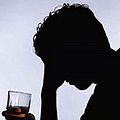
Everyone knows that drinking is awesome. When you’re drunk, everyone is fun and funny, and everything that comes out of your mouth is hilarious. You’re witty and unguarded, and say exactly what you mean and no one holds that against you because you’re drunk! You are beautiful, and you’re an amazing dancer. You have the singing voice of an angel. Boys (or girls) think you’re hot—you’re so good at flirting! You are life. You are youth. You love your friends! Worries be damned, you are totally relaxed, you’re feet don’t hurt anymore, you aren’t cold, and this party—thank GOD because you put a lot of effort into your outfit— isn’t lame.
But sometimes it isn’t awesome, and everyone knows this as well. When you drink too much, and are crouched over the toilet and/or a CityCo bag throwing up, and (almost definitely) rasping slurred apologies to the person holding your hair, or, to keep things gender-unspecific, baseball hat, drinking starts to suck. And it can get worse. There’s the guy who passed out in one of the bedrooms—has anyone checked on him in a while? He’s thrown up more. Should we call an ambulance? I don’t know. I don’t know either—I can’t deal with this right now! I am life!
Experimental reporting/slam poetry aside, the point I’m trying to make is that we don’t always know what to do when a friend gets too drunk and needs medical attention. Often, we can’t even recognize the signs of an emergency—especially when we are intoxicated ourselves. Worse, we as students may feel disinclined to seek medical attention for a friend out of fear for the academic and legal repercussions. The BUPD’s policy regarding these situations isn’t widely understood, and alternatively, non-BU-affiliated services aren’t widely employed.

This is why I found Tuesday evening’s lecture on BU medical transportation so interesting. Hosted as part of the SSDP-sponsored Alcohol Awareness Week, the event was comprised of three lectures delivered by BU and BUPD staff that handle alcohol-related emergencies and the subsequent disciplinary action.
To make a long lecture short, two of the four speakers offered only bland, health-class type information on things like blood alcohol content, cirrhosis, and “healthy habits.” Ken Douglas of Residence Life and Dale Robbins of Judicial Affairs, however, spoke candidly (they were resistant to questions and, I believe, purposely ambiguous) on the “sanctions” hospitalized students can receive. I wasn’t surprised to learn that students admitted for drinking can face semi-severe punishments such as prohibition and temporary ban from residences “depending on the circumstance” (I wasn’t told what dictated the severity).
I was surprised, however, to learn that intoxicated students who call 911 for their friends could face repercussions as well. For the drunk 911-caller, this typically means the completion of an alcohol education program, but more severe punishments, like fines, are also possible. I asked if they thought this policy would in turn make BU students resistant to call for help, and my question was met with an the response that “other schools have similar policies,” and something about the alcohol education classes “not being so bad.”
Of course, always call for help if someone needs it (and on Wednesday there will be a seminar on how to tell of someone needs it), regardless of your school’s questionable disciplinary policies. This does, however, bring to light areas in which our university could stand to improve. At the same time, we are fortunate that the Students for Sensible Drug Policy are currently working to reform our system so that intoxicated student callers will one day not face penalty for helping a needy friend. After all, with college drinking as inevitable as the passage of time, nothing is worth risking a person’s safety.
For more information on the SSDP, please visit the organization’s website or follow the BU chapter on Twitter.

Another serious repercussion of entering the student conduct policy violation system (“sanctions” at your school, it’s a little different where I did my undergrad, but every school does have a Dean of Students who is responsible for harshing your mellow/slowing your roll) is that most graduate schools — law and med school admission committees in particular — want to know if you’ve ever been the target of any institutional action probation-level and beyond. What you describe as “prohibition”/probation and “temporary housing suspension” are most definitely a part of your student conduct records, and omitting them from the graduate school admission is grounds for later expulsion from the program. 100 grand and 4 years later, getting ready to take the licensing exam/bar/whatever, that would really suck. There’s a huge incentive to avoid putting official marks on your record, and I think the answer you were given — alcohol education classes being “not so bad” — is completely asinine. This is an issue that needs to be brought up at any school where students are compelled to (drunkenly) decide between permanent record marks and someone’s safety.